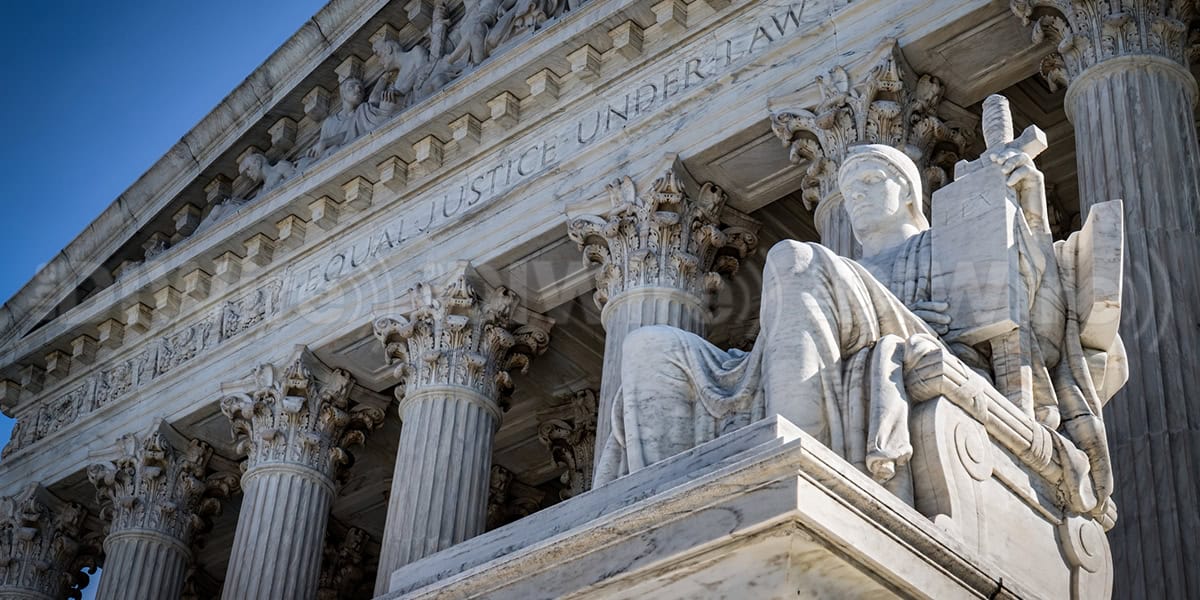Supreme Court Rules Against SEC in Jarkesy Case, Limiting Agency’s In-House Enforcement

The U.S. Supreme Court ruled today against the U.S. Securities and Exchange Commission in a dispute over the agency’s ability to adjudicate matters in-house before administrative law judges, rather than in federal court before a jury.
In 2013, the SEC initiated an enforcement action against respondents George Jarkesy Jr. and his firm, Patriot28 LLC, seeking civil penalties for alleged securities fraud.
As the Supreme Court considered whether the Seventh Amendment permits the SEC to compel respondents to defend themselves before the agency, SEC v. Jarkesy was one of several cases before the Supreme Court this term that challenged the actions of federal agencies and threatened to curtail their power.
In a 6-3 decision, the court ruled that the SEC’s reliance on their own internal enforcement violated the Seventh Amendment, which guarantees the right to a jury trial. Chief Justice John Roberts delivered the opinion of the court, which has far-reaching implications for the federal bureaucracy and the way in which executive agencies enforce legal and regulatory mandates.
“The acts [Jarkesy] allegedly committed may warrant serious sanctions. But that should not obscure what is at stake in his case or others like it. While incursions on old rights may begin in cases against the unpopular, they rarely end there,” wrote Roberts on behalf of the majority. “The authority the government seeks (and the dissent would award) in this case – to penalize citizens without a jury, without an independent judge, and under procedures foreign to our courts – certainly contains no such limits. … The [Supreme] Court hardly leaves the SEC without ample powers and recourse. The agency is free to pursue all of its charges against Mr. Jarkesy. And it is free to pursue them exactly as it had always done until 2010: In a court, before a judge, and with a jury. With these observations, I am pleased to concur.”
According to past reporting by The DI Wire, Texas-based hedge fund manager George Jarkesy, who the SEC fined and barred from the industry after determining he had committed securities fraud, challenged the legality of the agency’s system.
Shortly after passage of the 2010 Dodd-Frank Wall Street Reform and Consumer Protection Act 2010, the SEC began investigating Jarkesy and Patriot28, for securities fraud. Between 2007 and 2010, Jarkesy launched two investment funds, raising about $24 million from 120 accredited investors. An administrative law judge at the SEC was assigned the proceeding and found that Jarkesy violated several securities laws. He was eventually ordered to pay a civil penalty of $300,000 in what the SEC determined were illicit gains. Patriot28 was also ordered to pay nearly $685,000.
The Jarkesy lawsuit was supported by numerous conservative and business groups, which long have complained about the regulatory reach of the federal “administrative state” in areas such as energy, the environment, climate policy, workplace safety, and financial regulation.
The conservative justices had previously expressed concern that SEC administrative proceedings are conducted for certain charges such as fraud, without a jury, when similar cases alleging fraud in federal court would have one.
As The DI Wire previously reported, the ruling against the SEC could reduce or delay action against misconduct by brokers, investment advisers and others, and potentially frustrate enforcement at other federal agencies, as well. Representation for the U.S. Justice Department warned of “wide repercussions” from such decisions, noting that two dozen agencies impose penalties in administrative proceedings.
Writing the dissent, Justice Sonia Sotomayor wrote “Today’s ruling is part of a disconcerting trend: When it comes to the separation of powers, this [Supreme] Court tells the American public and its coordinate branches that it knows best. … The [Supreme] Court tells Congress how best to structure agencies, vindicate harms to the public at large, and even provide for the enforcement of rights created for the government.”

